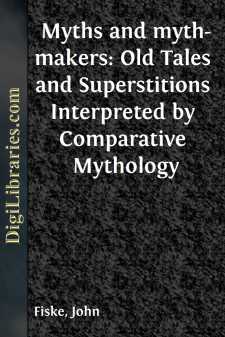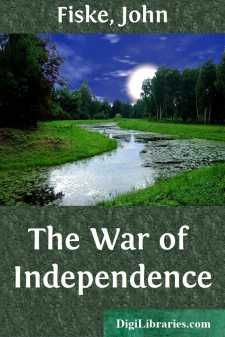Categories
- Antiques & Collectibles 13
- Architecture 36
- Art 48
- Bibles 22
- Biography & Autobiography 813
- Body, Mind & Spirit 142
- Business & Economics 28
- Children's Books 17
- Children's Fiction 14
- Computers 4
- Cooking 94
- Crafts & Hobbies 4
- Drama 346
- Education 46
- Family & Relationships 57
- Fiction 11829
- Games 19
- Gardening 17
- Health & Fitness 34
- History 1377
- House & Home 1
- Humor 147
- Juvenile Fiction 1873
- Juvenile Nonfiction 202
- Language Arts & Disciplines 88
- Law 16
- Literary Collections 686
- Literary Criticism 179
- Mathematics 13
- Medical 41
- Music 40
- Nature 179
- Non-Classifiable 1768
- Performing Arts 7
- Periodicals 1453
- Philosophy 64
- Photography 2
- Poetry 896
- Political Science 203
- Psychology 42
- Reference 154
- Religion 513
- Science 126
- Self-Help 84
- Social Science 81
- Sports & Recreation 34
- Study Aids 3
- Technology & Engineering 59
- Transportation 23
- Travel 463
- True Crime 29
The Discovery of America Vol. 1 (of 2) with some account of Ancient America and the Spanish Conquest
by: John Fiske
Categories:
Description:
Excerpt
PREFACE.
The present work is the outcome of two lines of study pursued, with more or less interruption from other studies, for about thirty years. It will be observed that the book has two themes, as different in character as the themes for voice and piano in Schubert's "Frühlingsglaube," and yet so closely related that the one is needful for an adequate comprehension of the other. In order to view in their true perspective the series of events comprised in the Discovery of America, one needs to form a mental picture of that strange world of savagery and barbarism to which civilized Europeans were for the first time introduced in the course of the fifteenth and sixteenth centuries, in their voyages along the African coast, into the Indian and Pacific oceans, and across the Atlantic. Nothing that Europeans discovered during that stirring period was so remarkable as these antique phases of human society, the mere existence of which had scarcely been suspected, and the real character of which it has been left for the present generation to begin to understand. Nowhere was this ancient society so full of instructive lessons as in aboriginal America, which had pursued its own course of development, cut off and isolated from the Old World, for probably more than fifty thousand years. The imperishable interest of those episodes in the Discovery of America known as the conquests of Mexico and Peru consists chiefly in the glimpses they afford us of this primitive world. It was not an uninhabited continent that the Spaniards found, and in order to comprehend the course of events it is necessary to know something about those social features that formed a large part of the burden of the letters of Columbus and Vespucius, and excited even more intense and general interest in Europe than the purely geographical questions suggested by the voyages of those great sailors. The descriptions of ancient America, therefore, which form a kind of background to the present work, need no apology.
It was the study of prehistoric Europe and of early Aryan institutions that led me by a natural sequence to the study of aboriginal America. In 1869, after sketching the plan of a book on our Aryan forefathers, I was turned aside for five years by writing "Cosmic Philosophy." During that interval I also wrote "Myths and Myth-Makers" as a side-work to the projected book on the Aryans, and as soon as the excursion into the field of general philosophy was ended, in 1874, the work on that book was resumed. Fortunately it was not then carried to completion, for it would have been sadly antiquated by this time. The revolution in theory concerning the Aryans has been as remarkable as the revolution in chemical theory which some years ago introduced the New Chemistry. It is becoming eminently probable that the centre of diffusion of Aryan speech was much nearer to Lithuania than to any part of Central Asia, and it has for some time been quite clear that the state of society revealed in Homer and the Vedas is not at all like primitive society, but very far from it. By 1876 I had become convinced that there was no use in going on without widening the field of study. The conclusions of the Aryan school needed to be supplemented, and often seriously modified, by the study of the barbaric world, and it soon became manifest that for the study of barbarism there is no other field that for fruitfulness can be compared with aboriginal America.
This is because the progress of society was much slower in the western hemisphere than in the eastern, and in the days of Columbus and Cortes it had nowhere "caught up" to the points reached by the Egyptians of the Old Empire or by the builders of Mycenæ and Tiryns. In aboriginal America we therefore find states of society preserved in stages of development similar to those of our ancestral societies in the Old World long ages before Homer and the Vedas. Many of the social phenomena of ancient Europe are also found in aboriginal America, but always in a more primitive condition. The clan, phratry, and tribe among the Iroquois help us in many respects to get back to the original conceptions of the gens, curia, and tribe among the Romans....




















